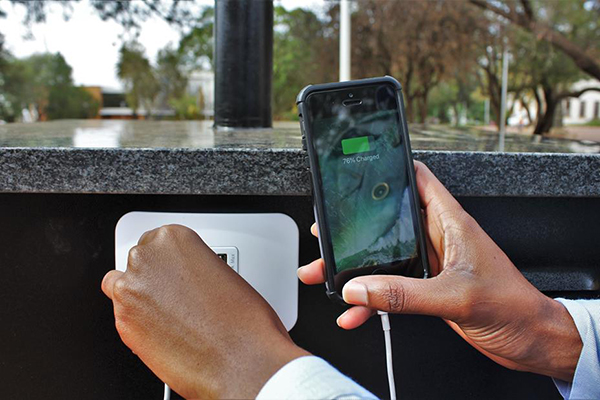Latest News Archive
Please select Category, Year, and then Month to display items
12 January 2024
|
Story Nonsindiswe Qwabe
|
Photo Sonia Small
 Since joining the UFS in 2008, Dr Grey Magaiza has worked extensively on approaches that can foster the socio-economic transformation of societies.
Since joining the UFS in 2008, Dr Grey Magaiza has worked extensively on approaches that can foster the socio-economic transformation of societies.
“The future should be one where communities can decide on their development agenda and futures. That’s the most important for me.” Dr Grey Magaiza, Deputy Director of the Centre for Gender and Africa Studies (CGAS) and Head of the Community Development programme on the Qwaqwa Campus, is passionate about capacitating communities to be agents of change and advancement. His vision for the future emphasises the empowerment of communities to take charge of their development by actively participating in decision making and the implementation of development projects that can improve their lives.
Since joining the UFS in 2008, Dr Magaiza has worked extensively on approaches that can foster the socio-economic transformation of societies. Over the years, he has crafted his research speciality into one that he is most proud of – being an interdisciplinary scientist immersed in the development of communities.
“I’m in a fortunate position of researching what I like. I say ‘fortunate’, because I’ve taken the time to understand what I’m passionate about, which is the overall field of rural livelihoods and livelihood futures – in short, community development. My research starts from an engaged university, understanding the elements that a university must use to enhance transformation and relevance to its immediate community in terms of development.”
One of the ways he has done this is by looking at social entrepreneurship as a development approach for young people in a rural setting. Through workshops with non-profit and civic organisations in Qwaqwa, Dr Magaiza has been helping these organisations to map out their needs and actively meet them through the involvement and support of external role players.
“We understand that communities are part of the national development agenda, but even that national agenda respects community knowledge and intentions and allows communities to shape their identity. A critical enabler of this is community organising. You bring back the capacity in communities to have dialogues on issues affecting them as spaces for engagement, knowledge exchange, and for people to just talk about their way forward.”
By enabling communities to define their development agenda, they can address their specific needs, challenges, and aspirations, he said. “When I look at livelihood futures, it’s quite an exciting aspect of my work – it’s like looking into a fortune tellers’ globe, because you’re not deciding for communities what they should do, but the communities themselves take those decisions.”
First solar charging station launched at UFS
2017-11-13

Students can now charge their phones at the first solar charging station
on the Bloemfontein Campus.
Photo: Moeketsi Mogotsi
On Friday 10 November 2017, the first solar charging station (600watts) was launched on the Bloemfontein Campus. This unit will be used by students to charge their phones and Ipads. It is the first of nine units to be installed on all three campuses; five on the Bloemfontein Campus and two each on the South and Qwaqwa Campuses.
Team effort results in great outcome
The project was a collaborative effort between the UFS and FCE Consulting Engineers. Coenie van der Merwe, Prototype Design Engineer, played a vital role in designing the charging unit. Anton Calitz, Electrical Engineer in University Estates’ Department of Facilities Management, says, “We are hoping that by the first quarter of 2018, we would have rolled out the remaining eight charging units.”
Project to enhance sustainability and address student needs
Prof Nicky Morgan, former Vice-Rector: Operations, says, “This should be a symbol of affordable opportunities that will both save the planet and enhance financial sustainability.” Nico van Rensburg, Senior Director of University Estates, says, “This renewable energy project is an innovative way of addressing student needs.”
However, students are advised not to charge other electrical appliances at the charging stations besides their phones and Ipads, as this may cause the charging unit to trip.
The UFS was recently awarded for its contribution towards sustainability. This was in recognition of its amazing initiative to install and operate photovoltaic (PV) and greywater systems on all three of its campuses.